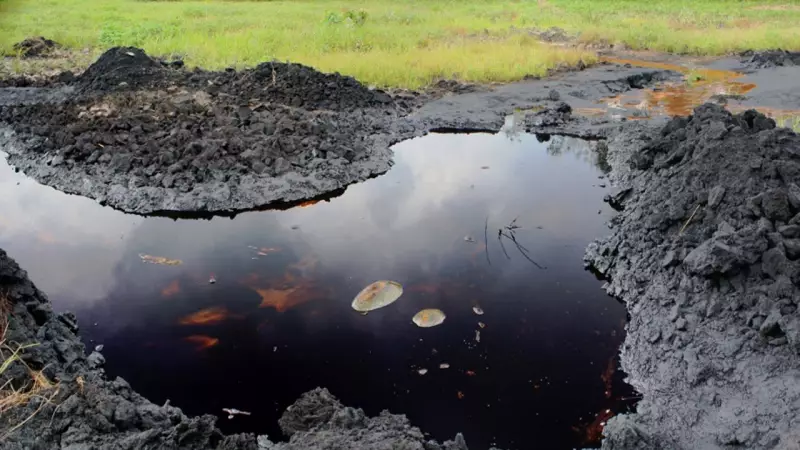
For decades, the Niger Delta has been trapped in an environmental nightmare—a heartbreaking cycle of oil spills contaminating waterways, destroying farmlands, and threatening the very survival of local communities. But now, a revolutionary approach is emerging that could finally break this destructive pattern.
The Human Cost of Continuous Contamination
The statistics paint a grim picture: over 13,000 oil spill incidents recorded since 1970, with millions of barrels of crude oil poisoning the ecosystem. Behind these numbers are real people—fishermen who can no longer feed their families, farmers watching their crops wither, and communities facing unprecedented health crises.
The environmental devastation is visible everywhere: once-vibrant mangroves now stand as skeletal remains, traditional fishing grounds have become death traps for marine life, and the air carries the toxic scent of petroleum that residents can no longer escape.
Why Temporary Fixes Have Failed
Traditional cleanup methods have consistently fallen short because they treat the symptoms rather than the disease. The conventional approach has been reactive—waiting for spills to happen, then scrambling to contain the damage. This piecemeal strategy ignores the root causes: aging infrastructure, inadequate monitoring, and insufficient community involvement.
The fundamental flaw has been addressing oil spills as isolated incidents rather than symptoms of a broken system that requires comprehensive reform from the ground up.
The Integrated Solution: A Multi-Pronged Revolution
The new strategy represents a paradigm shift that combines cutting-edge technology with community empowerment and policy reform. This holistic approach recognizes that technical solutions alone cannot solve what is ultimately a human and governance challenge.
Technology Meets Traditional Knowledge
Advanced satellite monitoring and drone surveillance are being deployed to detect spills in real-time, while incorporating indigenous knowledge about local ecosystems. This fusion of modern science and traditional wisdom creates a more responsive and culturally appropriate monitoring system.
Community-Led Environmental Governance
Local communities are transitioning from victims to active participants in environmental protection. Through specialized training programs, residents are becoming frontline defenders of their environment—equipped to monitor pipelines, report leaks immediately, and participate in cleanup operations.
Policy Overhaul and Corporate Accountability
Strengthened regulatory frameworks are holding oil companies to higher standards of operation and maintenance. The era of weak enforcement and minimal consequences for environmental violations is giving way to stricter compliance requirements and meaningful penalties for negligence.
The Road to Restoration: Beyond Cleanup
The most innovative aspect of this integrated approach is its focus on livelihood restoration. Rather than simply removing oil from the environment, the strategy includes comprehensive programs to help communities rebuild their economic foundations.
Key components include:
- Alternative livelihood programs for affected fishermen and farmers
- Skills development for green jobs in environmental management
- Micro-enterprise support for sustainable businesses
- Health intervention programs for communities exposed to oil pollution
A Model for Oil-Producing Regions Worldwide
What makes Nigeria's new approach particularly significant is its potential as a blueprint for other oil-producing regions facing similar challenges. From the Amazon to the Arabian Gulf, the lessons learned in the Niger Delta could inform global best practices for balancing energy extraction with environmental stewardship.
The integrated solutions being implemented represent more than just environmental policy—they signify a fundamental rethinking of the relationship between resource extraction, community welfare, and ecological sustainability.
While the path to full restoration remains long, this comprehensive strategy offers something previous efforts lacked: hope. Hope for children who might grow up seeing restored mangroves instead of oil-slicked waters. Hope for communities that have endured generations of environmental injustice. And hope for a future where Nigeria's natural wealth benefits all its people, not just at the expense of some.





